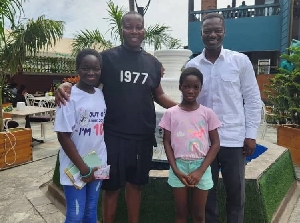In the face of the ever-looming climate crisis, educating the younger generation about the complexities and urgency of environmental issues has become paramount. However, traditional classroom teachings alone may not suffice. Intergenerational dialogue, particularly with Indigenous communities, offers a unique and invaluable approach to nurturing children's understanding of climate change while preserving ancient wisdom.
The Importance of Climate Change Education for Kids
Climate change education for children is essential for several reasons. Firstly, it empowers them with knowledge about the environment, fostering a sense of responsibility and stewardship from a young age. Secondly, it equips them with the tools to critically analyze environmental issues and advocate for sustainable solutions. Finally, it instils hope and motivation, showing them that even small actions can make a significant impact in combating climate change.
Empowering Children through Age-Appropriate Climate Education
Additionally, it's essential to recognize that children have an innate capacity to grasp complex issues, including the climate crisis, when information is presented in a manner appropriate for their age and level of understanding. By using engaging and interactive methods such as storytelling, hands-on activities, and visual aids, educators can effectively communicate the urgency and importance of environmental conservation to young learners. Empowering children with age-appropriate knowledge not only fosters their sense of agency but also cultivates a lifelong commitment to sustainability and environmental stewardship.
The Role of Intergenerational Dialogue
Intergenerational dialogue bridges the gap between the wisdom of elders and the curiosity of youth. It creates a platform for sharing experiences, stories, and traditional knowledge that have been passed down through generations. In the context of climate change education, this dialogue is invaluable as it provides children with holistic insights into environmental issues.
Indigenous Knowledge and Intergenerational Dialogue
Indigenous communities hold a wealth of knowledge about living in harmony with nature, acquired over centuries of close observation and interaction with the environment. Intergenerational dialogue within Indigenous communities offers a unique opportunity to transfer this knowledge to younger generations.
Learning from Indigenous Wisdom
Indigenous knowledge emphasizes concepts such as respect for nature, sustainable resource management, and interconnectedness with all living beings. By engaging in dialogue with elders, children can learn practical skills like identifying medicinal plants, tracking changes in weather patterns, and understanding the delicate balance of ecosystems.
The Importance of Respectful Engagement
It's crucial that intergenerational dialogue with Indigenous communities is approached with respect, humility, and a willingness to listen and learn. Children should be encouraged to ask questions, share their perspectives, and actively participate in cultural practices and ceremonies, fostering mutual respect and understanding.

Empowering the Next Generation of Environmental Stewards
By integrating Indigenous knowledge into climate change education for kids through intergenerational dialogue, we not only pass down valuable wisdom but also empower children to become advocates for environmental sustainability. Armed with a deep understanding of nature and a reverence for traditional knowledge, they are better equipped to address the challenges of the climate crisis and contribute to a more sustainable future.
Conclusion
In conclusion, intergenerational dialogue, particularly with Indigenous communities, plays a vital role in climate change education for children. By fostering respect, understanding, and the transfer of traditional knowledge, we empower the next generation to become environmental stewards capable of tackling the challenges of the climate crisis with wisdom and compassion. As we strive towards a more sustainable future, let us embrace the invaluable lessons that intergenerational dialogue has to offer.
The writer, Cedric Dzelu, African Youth Commission Youth Focal Person for the AACJ Project and Executive Director of Frontline for Climate Action
Opinions of Monday, 15 April 2024
Columnist: Cedric Dzelu
Fostering Intergenerational Dialogue: The key to climate change education for kids
Entertainment














